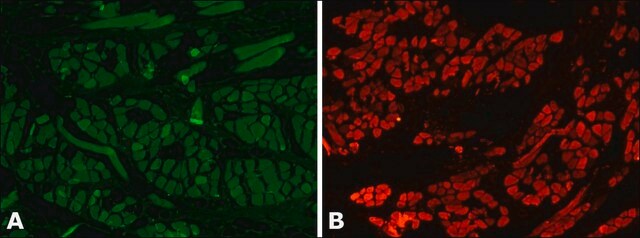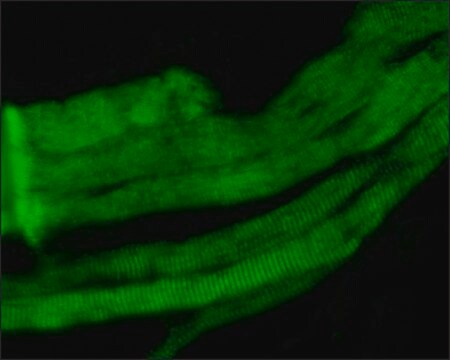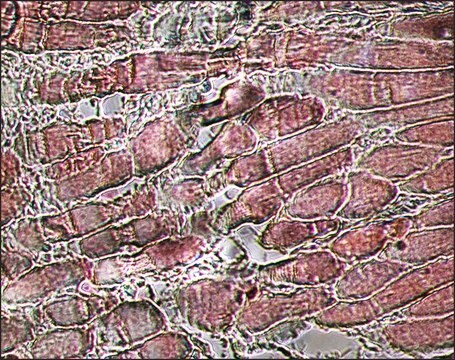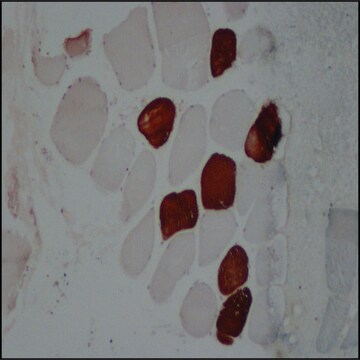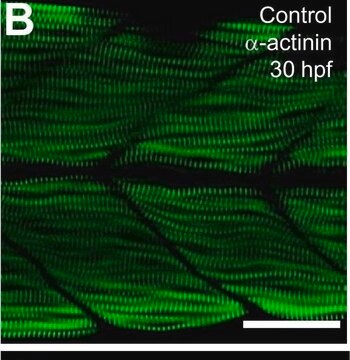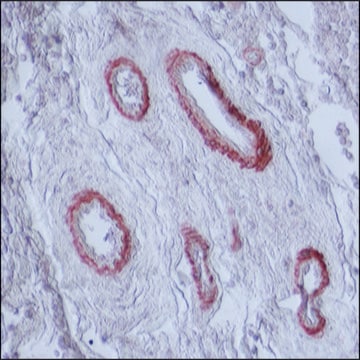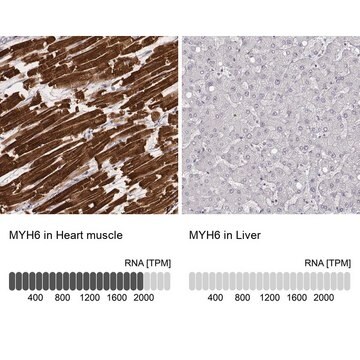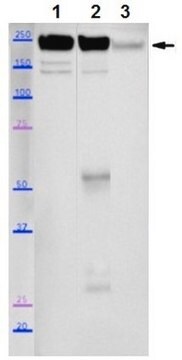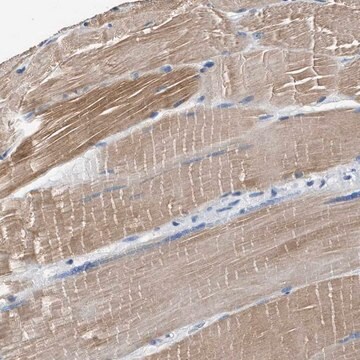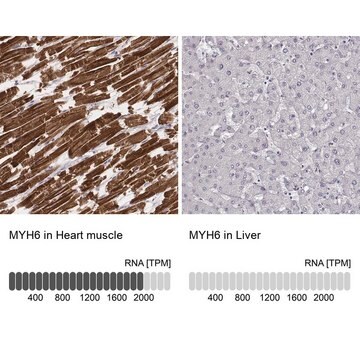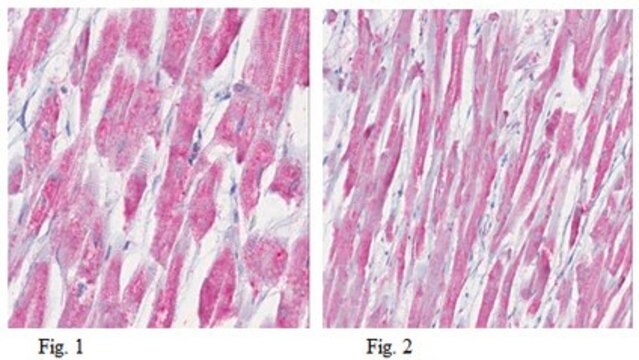M8421
Monoclonal Anti-Myosin (Skeletal, Slow) antibody produced in mouse
clone NOQ7.5.4D, ascites fluid
Sinónimos:
Anti-CMD1S, Anti-CMH1, Anti-MPD1, Anti-MYHCB, Anti-SPMD, Anti-SPMM
About This Item
Productos recomendados
origen biológico
mouse
Nivel de calidad
conjugado
unconjugated
forma del anticuerpo
ascites fluid
tipo de anticuerpo
primary antibodies
clon
NOQ7.5.4D, monoclonal
contiene
15 mM sodium azide
reactividad de especies
sheep, rat, bovine, hamster, pig, canine, feline, goat, chicken, mouse, rabbit, human, guinea pig
envase
antibody small pack of 25 μL
técnicas
electron microscopy: suitable
immunohistochemistry (formalin-fixed, paraffin-embedded sections): 1:4,000 using protease-digested, sections of rabbit tongue
indirect ELISA: suitable
radioimmunoassay: suitable
western blot: 1:5,000 using extract of rat or rabbit tongue
isotipo
IgG1
Nº de acceso UniProt
Condiciones de envío
dry ice
temp. de almacenamiento
−20°C
modificación del objetivo postraduccional
unmodified
Información sobre el gen
human ... MYH7(4625)
mouse ... Myh7(140781)
rat ... Myh7(29557)
Categorías relacionadas
Descripción general
Monoclonal Anti-Myosin (Skeletal, Slow) (mouse IgG1 isotype) is derived from the NOQ7.5.4D hybridoma produced by the fusion of mouse myeloma cells and splenocytes from BALB/c mice. Myosin, purified from myofibrils isolated from human skeletal muscle, was used as the immunogen.1-3. The isotype is determined by a double diffusion immunoassay using Mouse Monoclonal Antibody Isotyping Reagents, Catalog Number ISO2.
Especificidad
Inmunógeno
Aplicación
Monoclonal Anti-Myosin (Skeletal, Slow) antibody has been used in the detection of Myosin 7 using:
- light microscopy
- immunofluorescence staining
- immunoblotting
- ELISA
- solid-phase RIA
- immunohistology (frozen, formalin-fixed, paraffin-embedded and methacarn-fixed paraffin-embedded tissue sections)
- immunoelectronmicroscopy
Acciones bioquímicas o fisiológicas
Transient expression of different myosin isoforms occurs during fetal growth and development. Mutations in myosin 7 is associated with laing distal myopathy (LDM). Myosin 7 gene mutations results in muscular dystrophy diseases like scapuloperoneal myopathy. Mutations leads to storage of myosin protein aggregates in muscle, leading to myosin storage myopathy. Mutations in MYH7 is also associated with hypertrophic cardiomyopathy and in heart malformation disease called ebstein anomaly.
Forma física
Almacenamiento y estabilidad
Cláusula de descargo de responsabilidad
¿No encuentra el producto adecuado?
Pruebe nuestro Herramienta de selección de productos.
Código de clase de almacenamiento
12 - Non Combustible Liquids
Clase de riesgo para el agua (WGK)
WGK 3
Punto de inflamabilidad (°F)
Not applicable
Punto de inflamabilidad (°C)
Not applicable
Elija entre una de las versiones más recientes:
¿Ya tiene este producto?
Encuentre la documentación para los productos que ha comprado recientemente en la Biblioteca de documentos.
Los clientes también vieron
Nuestro equipo de científicos tiene experiencia en todas las áreas de investigación: Ciencias de la vida, Ciencia de los materiales, Síntesis química, Cromatografía, Analítica y muchas otras.
Póngase en contacto con el Servicio técnico